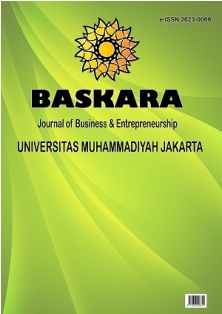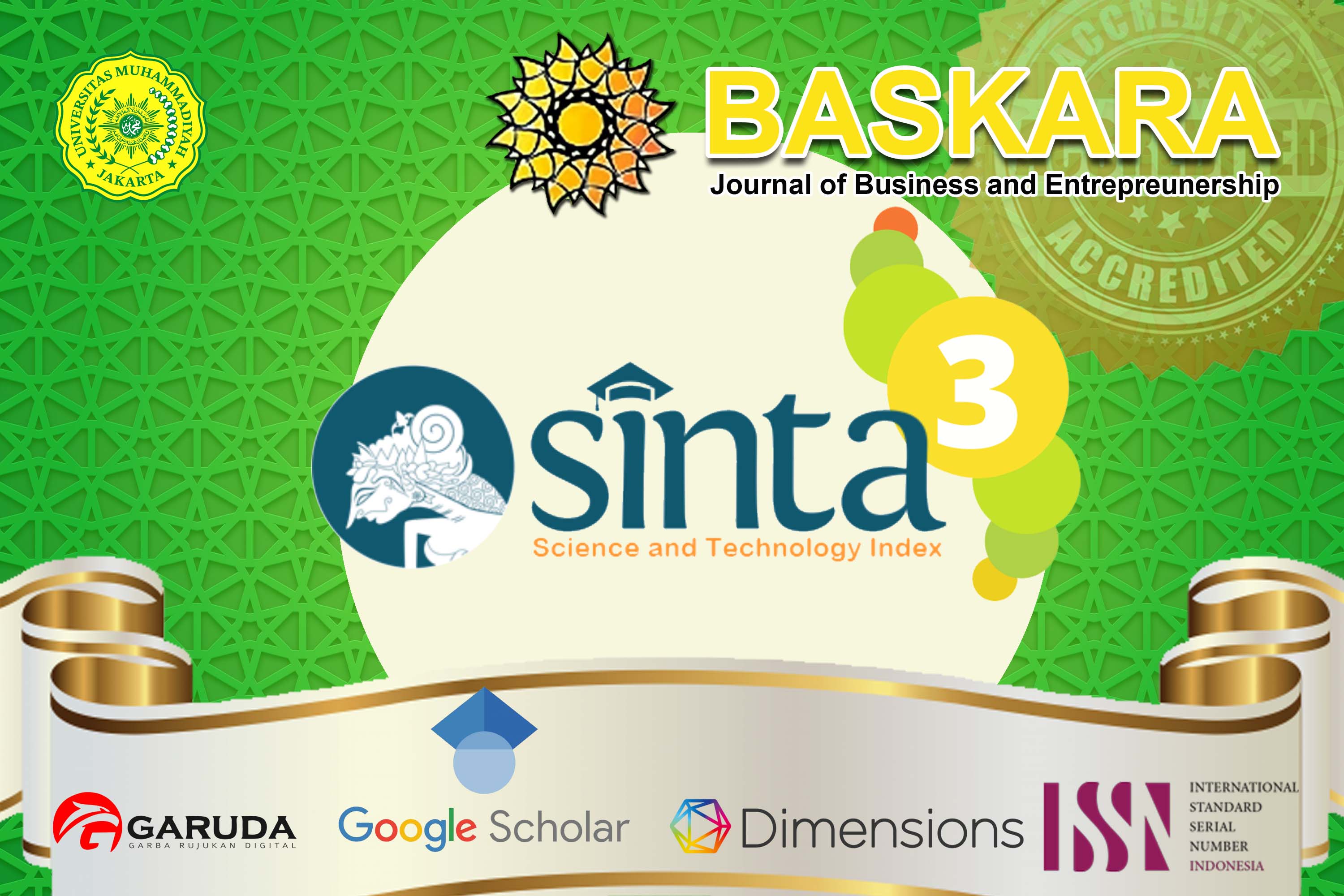Public Perception of Large Scale Social Restrictions
DOI:
https://doi.org/10.54268/baskara.v3i1.8332Keywords:
Perception, Large Scale Social Restrictions, COVID-19Abstract
This study focuses on the public perception of Soreang District, Bandung Regency regarding Large-Scale Social Restrictions. This problem is examined because in its implementation the Large Scale Social Restrictions creates many different perceptions that are felt by each individual, thus affecting the effectiveness of the implementation of the policy. The purpose of this study is to determine the extent of public knowledge and attitudes about Large Scale Social Restrictions and to find out whether the community has complied with the policy. To answer these objectives, researchers used descriptive research methods with a qualitative approach. The technique of collecting data through interviews, observation and document review. The interview involved most of the people of Soreang District, Bandung Regency. Meanwhile, document review is taken from news in various mass media as well as theory from relevant references. Data analysis techniques use reduction analysis, display, and data conclusion. The results of this study indicate that the people of Soreang District, Bandung Regency already understand and comply with the Large Scale Social Restrictions policy. This is supported by the results of interviews the researchers conducted with several informants, on average, with knowledge of the Large Scale Social Restrictions policy. This level of understanding is manifested through daily behavior by following the provisions of the Large Scale Social Restrictions and implementing health protocols.References
Adli, D. N. (n.d.). The impact of hashtag #IndonesiaTerserah on the effectiveness of COVID-19 handling policies in Indonesia.
Buana, D. R. (2020). Analysis of Indonesian People's Behavior in Dealing with the Coronavirus Pandemic (Covid-19) and Tips to Maintain The Welfare of The Soul. Syar-I Social & Cultural Journal, 7(3), 217-226.
Dani, J. A., & Mediantara, Y. (2020). Covid-19 and Changes in Social Communication. Persepsi: Communication Journal, 3(1), 94–102. https://doi.org/10.30596/persepsi.v
Febrian, D. A. (2020). The Origin and Spread of Coronavirus from Wuhan to The World. February 27th. https://bali.idntimes.com/health/medical/denny-adhietya/asal-muasal-dan-perjalanan-virus-corona-dari-wuhan-ke-seluruh-dunia-regional-bali/8
Firmansyah, R. (2020). Covid-19 Task Force Announces PSBB Leniency, If Citizens Are Disciplined. May 10th. https://prfmnews.pikiran-rakyat.com/jawa-barat/pr-13379936/gugus-tugas-covid-19-jabar-wacanakan-kelonggaran-psbb-jika-warga-disiplin
Hadiwardowo, Wibowo. (2020). National Economic Losses Due to The Covid-19 Pandemic. Baskara: Journal of Business & Entrepreneurship, 2(2), 83-92.
Hartati, P., & Susanto. (2020). The Role of Farm Youth In Preventing The Spread of Covid-19 at The Farmer Level (Cases in Magelang Regency). Baskara: Journal of Business & Entrepreneurship, 2(2), 107-112.
Hidayat, D., & Noeraida. (2020). Student Communication Experience Conducts Online Classes During the COVID-19 Pandemic. Journal of Securities Communication, 3(2), 172–182. https://doi.org/10.32534/jike.v3i2.1017
Jabar website. (n.d.). Implementation of PSBB in west java. https://jabarprov.go.id/index.php/berita_gambar/detail/2899/Pemberlakuan_PSBB_di_Jawa_Barat
Lestari, N. A., & Rustiana, S. H. (2019). The Influence of Owner Perception and Accounting Knowledge in The Use of Accounting Information System on The Performance of Micro, Small, and Medium Enterprises in Pamulang. Baskara: Journal of Business & Entrepreneurship, 1(2), 67-79.
Pratama, N. A., & Hidayat, D. (2020). Knowledge and Behavior of Society Interprets Social Distancing. Journal of Digital Media & Relationship, 2(1), 1–10.
Priyantoro, D. D. (2020). Driving Rules During the Implementation of PSBB in West Java. April 15th. https://otomotif.kompas.com/read/2020/04/15/094200015/aturan-berkendara-selama-penerapan-psbb-di-jawa-barat
Purwodaminto. (n.d.). 10 Understanding Perception According to Experts. https://dosenpsikologi.com/pengertian-persepsi-menurut-para-ahli
Rahman, L. O. R. (2020). OPINION; Physical Distancing and Communication Culture. April, 10. http://www.iainpare.ac.id/opini-physical-distancing-dan-budaya-komunikasi/
Walgito, B. (2010). Introduction to Psychology. Yogyakarta: CV Andi Offset.
Walgito, B. (2013). Perception in psychology complete with principles, processes, evidence of perception, factors, traits and phenomena. October. http://ahmadroihan8.blogspot.com/2013/10/persepsi-dalam-psikologi-lengkap.html
World Health Organization. (2020). Recommendations on the use of masks in the context of COVID-19. World Health Organization, April
Downloads
Published
Issue
Section
License
In order for Baskara: Journal of Business and Entrepreneurship to publish and disseminate research articles, we need publishing rights (transfered from author(s) to publisher). This is determined by a publishing agreement between the Author(s) and Baskara Journal. This agreement deals with the transfer or license of the copyright of publishing to Baskara: Journal of Business and Entrepreneurship, while Authors still retain significant rights to use and share their own published articles. Baskara : Journal of Business and Entrepreneurship supports the need for authors to share, disseminate and maximize the impact of their research and these rights, in any databases.
As a journal Author, you have rights for a large range of uses of your article, including use by your employing institute or company. These Author rights can be exercised without the need to obtain specific permission. Authors publishing in Baskara : Journal of Business and Entrepreneurship have wide rights to use their works for teaching and scholarly purposes without needing to seek permission, including:
- use for classroom teaching by Author or Author's institution and presentation at a meeting or conference and distributing copies to attendees;
- use for internal training by author's company;
- distribution to colleagues for their reseearch use;
- use in a subsequent compilation of the author's works;
- inclusion in a thesis or dissertation;
- reuse of portions or extracts from the article in other works (with full acknowledgement of final article);
- preparation of derivative works (other than commercial purposes) (with full acknowledgement of final article);
- voluntary posting on open web sites operated by author or author’s institution for scholarly purposes.
Copyright Transfer Agreement for Publishing (Publishing Right)
The Authors who submit manuscript has to understand that if accepted for publication, mean that all copyright and publishing right of the article shall be assigned/transferred to Baskara: Journal of Business and Entrepreneurship as assigned publisher.
- CC BY-NC: This license allows reusers to distribute, remix, adapt, and build upon the material in any medium or format for noncommercial purposes only, and only so long as attribution is given to the creator.
It includes the following elements:
BY ![]() – Credit must be given to the creator
– Credit must be given to the creator
NC ![]() – Only noncommercial uses of the work are permitted
– Only noncommercial uses of the work are permitted
Baskara (C) Copyright (2022):
BASKARA: Journal of Business and Entrepreneurship by https://jurnal.umj.ac.id/index.php/baskara
is licensed under a Creative Commons Attribution-NonCommercial 4.0 International License








